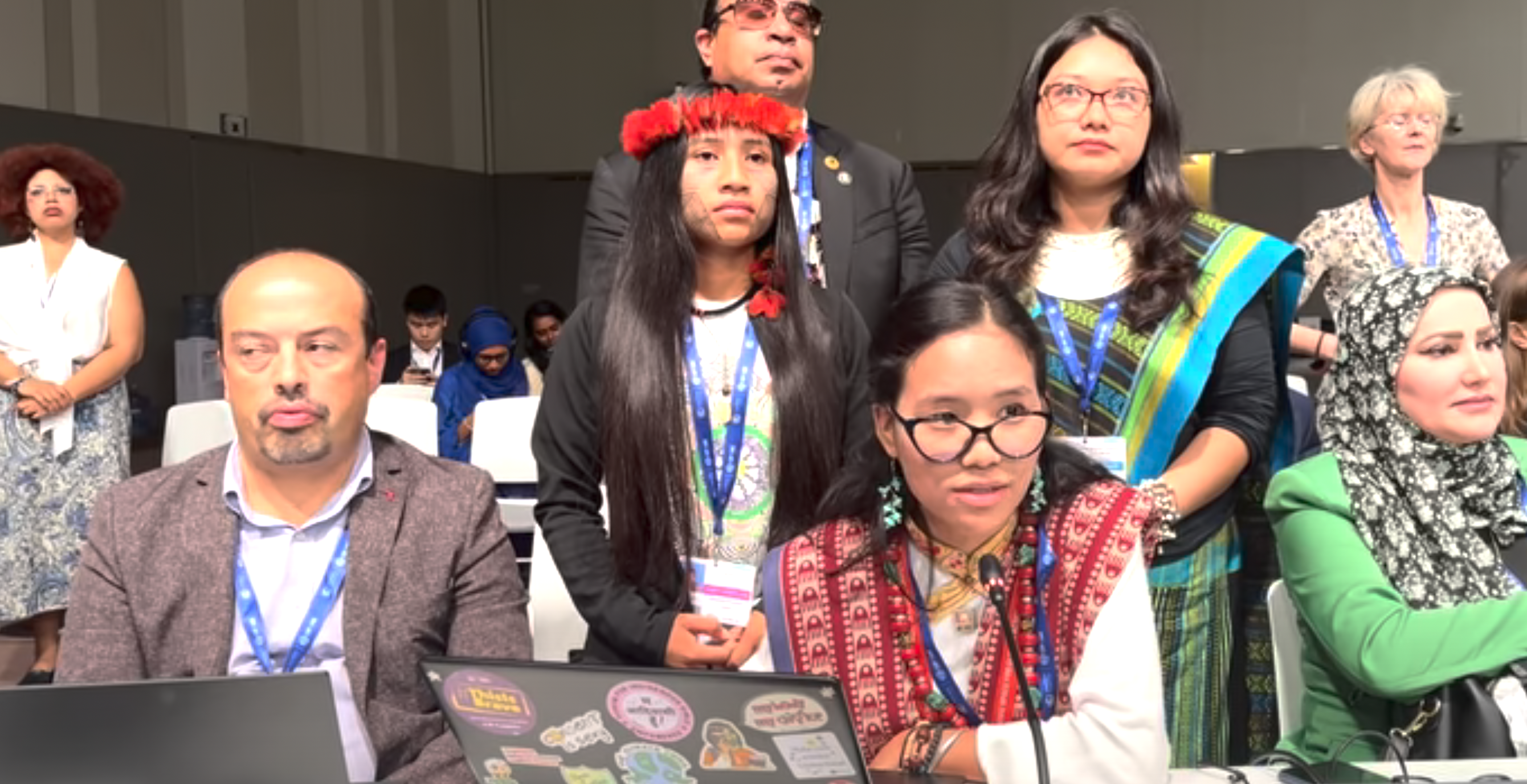
- Details
- By Jenna Kunze
Late last week, more than 70,000 delegates from nearly every nation in the world met in Dubai, United Arab Emirates, to begin a two-week climate conference known as the Conference of Parties, or COP28.
On the first day of the conference, world nations approved an initial draft of a Loss and Damages Fund, where richer countries will pay towards a fund that can be accessed by developing countries that are particularly vulnerable to the adverse effects of climate change. The United States committed $17.5 million to the fund, the United Arab Emirates committed $100 million, Germany committed $100 million, Japan committed $10 million, and the United Kingdom about $50 million to the fund and close to $38 million for other arrangements.
Leaders are still deciding how the funding mechanisms for the Loss and Damages Fund will operate.
Indigenous Youth activist Pema Wangmo Lama Mugum, representing the National Indigenous Women's Federation of Nepal, read an opening statement on Nov. 30, on behalf of the Indigenous Peoples' Caucus.
“We demand for a meaningful process, including direct access to the fund, for Indigenous Peoples,” Wangmo Lama Mugum said of the Loss and Damages Fund. “Indigenous Peoples are facing increasing disasters in our homelands as states fail in their commitment to limit temperature rising to 1.5 degree Celsius. In 2023, this cap was exceeded, threatening our ways of life in Asia and around the world.”
According to NDN Collective Southwest Regional Director Janene Yazzie, who is on the ground in Dubai, international funds often operate under a model that prioritizes donor countries.
“In this way, it serves neocolonialism over and over again to the detriment of the intended beneficiaries,” she said in a statement. “This is a way for them to influence political power under the guise of offering help and aid when what we really need is for resources to flow in a way that upholds the rights and self-determination of Indigenous Peoples.”
One of the priorities Indigenous People, smaller countries, and underfunded countries have been advocating for is a formal body to handle disputes when injustices occur– a Grievance Mechanism.
“By putting pressure on environmental regulations and on political governance systems in a way that allows transnational companies to come in to manipulate and monopolize development, expanding their corporate empire, is why we need safeguards in place that protect Indigenous Peoples’ rights,” Yazzie said in a statement. “These larger settler countries rely on entities like the World Bank and the IMF to serve as intermediaries that uphold these agendas. At NDN, we are showing how transformative an Indigenous-led and designed movement organization can be.”
More Stories Like This
Gwich'in Tribal Governments Submit Comments Challenging Fish and Wildlife Service's Inadequate Environmental Review of Arctic Refuge Snow RoadRappahannock Tribe Challenges 9M-Gallon Water Plan
Feds release draft long-term plans for Colorado River management
Apache Leader Walks 60 Miles to Court Hearing That Will Decide Fate of Sacred Oak Flat
Rappahannock Tribe Raises Sovereignty and Environmental Concerns Over Caroline County Water Permit
Help us defend tribal sovereignty.
At Native News Online, our mission is rooted in telling the stories that strengthen sovereignty and uplift Indigenous voices — not just at year’s end, but every single day.
Because of your generosity last year, we were able to keep our reporters on the ground in tribal communities, at national gatherings and in the halls of Congress — covering the issues that matter most to Indian Country: sovereignty, culture, education, health and economic opportunity.
That support sustained us through a tough year in 2025. Now, as we look to the year ahead, we need your help right now to ensure warrior journalism remains strong — reporting that defends tribal sovereignty, amplifies Native truth, and holds power accountable.
 The stakes couldn't be higher. Your support keeps Native voices heard, Native stories told and Native sovereignty defended.
The stakes couldn't be higher. Your support keeps Native voices heard, Native stories told and Native sovereignty defended.
Stand with Warrior Journalism today.
Levi Rickert (Potawatomi), Editor & Publisher


